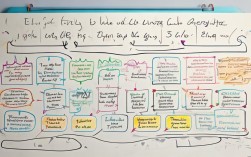核心翻译
“批判性思维”最直接、最标准的翻译是:

- Critical Thinking
这是在学术界、教育界和职场中最通用的术语。
详细解释与内涵
Critical Thinking 并不等于 “批评” (criticism),它的核心内涵是 一种理性的、反思性的思维方式,旨在分析和评估信息,以形成合理的判断或做出明智的决定。
它的主要特点包括:
- 分析: 将复杂的信息或问题分解成更小的、可管理的部分。
- 评估: 质疑信息的来源、证据的有效性、逻辑的严谨性以及潜在的偏见。
- 推理: 运用逻辑(归纳和演绎)从证据中得出结论。
- 反思: 对自己的思维过程进行审视,承认自己的认知偏见,并愿意根据新证据改变观点。
- 开放性: 对不同的观点和持不同意见的人保持开放态度。
- 解决问题: 基于分析和评估,提出有效的解决方案。
Critical Thinking 是 “带着问题去思考”,而不是 “带着答案去批评”。
相关词汇和短语
掌握这些词汇能帮助你更精确地理解和运用批判性思维。
作为名词
- Critical Thinking: 批判性思维 (核心术语)
- 例句: Universities aim to cultivate students' critical thinking skills. (大学旨在培养学生的批判性思维能力。)
- Critique: 批评,评论 (更侧重于对作品、理论或观点的系统性分析和评价)
- 例句: She wrote a detailed critique of the new marketing strategy. (她对新的市场营销策略写了一份详细的评论。)
- Analysis: 分析 (批判性思维过程中的一个关键步骤)
- 例句: His analysis of the data revealed some surprising trends. (他对数据的分析揭示了一些令人惊讶的趋势。)
- Reasoning: 推理,论证
- 例句: His reasoning was flawed because he ignored key evidence. (他的推理是有缺陷的,因为他忽略了关键证据。)
- Evaluation: 评估,评价
- 例句: We need to do a thorough evaluation of the project's success. (我们需要对项目的成功进行一次彻底的评估。)
作为动词
- To critique: 对...进行评论/批评
- 例句: The committee will critique all the submitted proposals. (委员会将对所有提交的提案进行评审。)
- To analyze: 分析
- 例句: Let's analyze the causes of the problem. (我们来分析一下这个问题的原因。)
- To question: 质疑
- 例句: A good scientist always questions assumptions. (一个好的科学家总是会质疑假设。)
- To assess: 评估,评定
- 例句: We need to assess the risks involved before making a decision. (在做决定之前,我们需要评估所涉及的风险。)
- To evaluate: 评价
- 例句: It's important to evaluate the source of information. (评估信息来源很重要。)
作为形容词
- Critical: 批判性的,关键的
- 例句: He has a very critical mind. (他有一个非常爱批判性思考的头脑。)
- 例句: This is a critical decision for the company. (这是公司的一个关键决定。)
- Analytical: 分析性的
- 例句: She is known for her analytical approach to solving problems. (她以其分析性的解决问题方法而闻名。)
- Logical: 逻辑的,合乎逻辑的
- 例句: His argument is logical and easy to follow. (他的论点很有逻辑,很容易理解。)
如何在实际中使用
在学术写作中
- 表达观点: "While some scholars argue X, a critical analysis of their evidence suggests Y." (虽然一些学者认为X,但对他们的证据进行批判性分析后表明Y。)
- 提出方法论: "This study employs a critical thinking framework to evaluate the data." (本研究采用批判性思维框架来评估数据。)
- 指出不足: "The author's critique of the theory is insightful, but it overlooks certain cultural contexts." (作者对该理论的评论很有见地,但它忽略了某些文化背景。)
在职场沟通中
- 提出建议: "Before we proceed, I'd like to critique this plan from a risk management perspective." (在继续之前,我想从风险管理的角度来评论一下这个计划。)
- 进行头脑风暴: "Let's analyze the pros and cons of each option critically." (让我们批判性地分析一下每个选项的优缺点。)
- 绩效评估: "He is strong in analytical skills and can assess complex situations effectively." (他的分析能力很强,能够有效地评估复杂的情况。)
在日常对话中
- 表示怀疑: "I'm not sure I agree. Let me question the assumptions behind that statement." (我不确定我是否同意,让我来质疑一下那个陈述背后的假设。)
- 寻求深度: "That's an interesting point. Can you elaborate on your reasoning?" (这是个有趣的观点,你能详细解释一下你的推理过程吗?)
- 自我反思: "I need to critically evaluate my own biases in this matter." (我需要批判性地评估自己在这件事上的偏见。)
| 中文 | 英语 | 核心含义 |
|---|---|---|
| 批判性思维 | Critical Thinking | 一种理性、反思性的分析和评估过程,是核心术语。 |
| 分析 | Analysis | 将信息分解,是批判性思维的重要步骤。 |
| 评论/批评 | Critique | 对事物进行系统性的评价和评论,比简单的 "criticism" 更中性、更专业。 |
| 评估 | Evaluation / Assessment | 判断某事物的价值、质量或重要性。 |
| 推理 | Reasoning | 运用逻辑得出结论的过程。 |
| 质疑 | Question | 对信息的真实性、有效性提出疑问。 |
Critical Thinking 的精髓是 “建设性的怀疑” (constructive skepticism),目的是为了追求更深刻、更准确的理解,而不是为了批评而批评。











